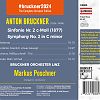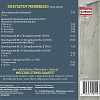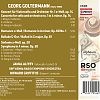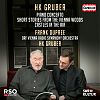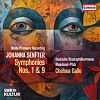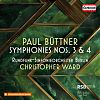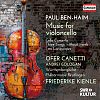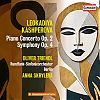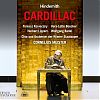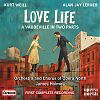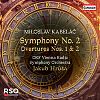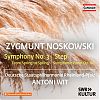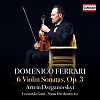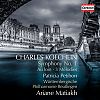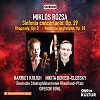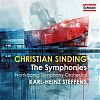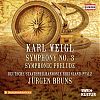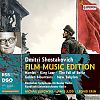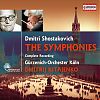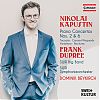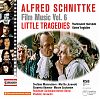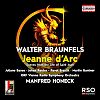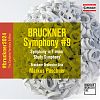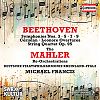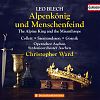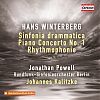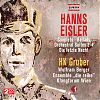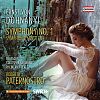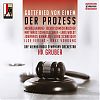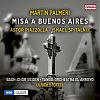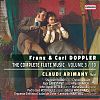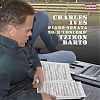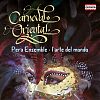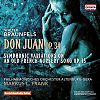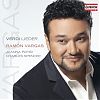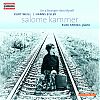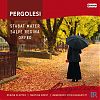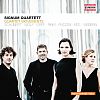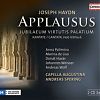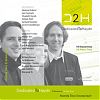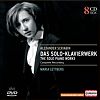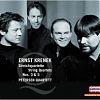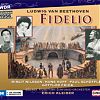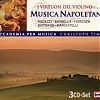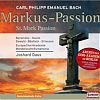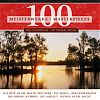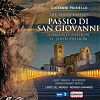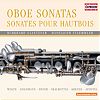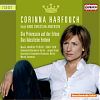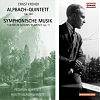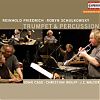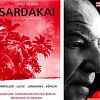cd

#bruckner24 Symphony #2 (1877)
BRUCKNER ORCHESTER LINZ · Markus Poschner
This Complete Versions Edition includes all versions published or to be published under the auspices of the Austrian National Library and the International Bruckner Society in the Neue Anton Bruckner Gesamtausgabe (The New Anton Bruckner Complete Edition)
"What nonsense”, grumbled Otto Dessoff after a read-through (to determine its repertoire-worthiness for the Vienna Philharmonic) of Bruckner’s Second Symphony. This doomed the work to a life of revision. The first version was written in 1871 when the Second was still the Third Symphony because the Zeroëth, then still the Second, hadn’t been annulled yet. Despite Bruckner managing a well-enough regarded premiere of this version, he set about to rework it during his period of revision in 1877 where he and his eager helpers set about to radically trim any perceived fat. The result, which we know as the second version, changed most in the Finale, where a full 193 bars were pruned. This version follows Bruckner’s cuts unflinchingly which cannot, however, alter the Symphony’s expansive proto-Brucknerian structure first heard here. And then that marvelous Adagio in this lyrical sister of the First Symphony!
Youtube
Weitere Bilder

Z. NOSKOWSKI
DEUTSCHE STAATSPHILHARMONIE RHEINLAND-PFALZ · ANTONI WIT
Although he had famous students (i.e. Szymanowski) and teachers (Moniuszko), few listeners know much, if anything, about Zygmunt Noskowski (1846–1909). And yet, for most of the 19th century, he was the primary exponent of modern symphonic music in Poland. As a conductor and concert organizer, he had himself championed the causes of forgotten Polish composers. Now it is Antoni Wit, Noskowski’s successor at the helm of the Warsaw Philharmonic at a distance of 94, who helps out his late-romantic colleague – just as he has already done with the music Zygmunt Stojowski on a previous Capriccio recording (C5464).
Youtube
Weitere Bilder

KURT WEILL: PROPHETEN · WALT WHITMAN SONGS
Dohmen · Azesberger · Hampson (Songs) · Wiener Jeunesse-Chor · ORF Vienna Radio Symphony Orchestra · Dennis Russell Davies
PROPHETS
A Biblical Cantata from The Eternal Road (1935)
Text by Franz Werfel (1890-1945) and from scriptures / Devised by David Drew
JEREMIAS, DIE STIMME SALOMOS / The Voice of Salomon, Albert Dohmen · RABBI, Kurt Azesberger · JESAJAH, ERSTER WEISSER ENGEL / First White Angel, ENGEL DER ENDZEIT / Angel of the End of Time, Michael Papst · WIDERSPRECHER / The Adversary, Gottfried Hornik · CHANANJAH, Bernd Fröhlich · RAHEL, EINE FRAU / A women, Ursula Fiedler · ERZÄHLER / Narrator, Anselm Lipgens
Wiener Jeunesse-Chor · Wiener Motettenchor
FOUR WALT WHITMAN SONGS
für Stimme und Orchester / for voice and orchestra
Thomas Hampson, Bariton / baritone
ORF Vienna Radio Symphony Orchestra
Dennis Russell Davies Dirigent / conductor
The score of The Prophets, intended as the last act of The Eternal Road, was the last that Kurt Weill composed in Europe and his last extensive setting in German, before he personally and professionally adopted the language of his new home, America. Musically, he drew on all his previous great works, from Mahagonny and the Seven Deadly Sinsto his Second Symphony. At the same time, he foreshadowed some of his soon-to-be-written works for Broadway. In 1998 David Drew devised the concert adaptation of this act, of which this is the premiere’s recording. The Four Walt Whitman Songs, meanwhile, were a product of the war years and reveal Weill at his most touchingly American, fusing American theater song with the German Lied, Berlin with Brooklyn.
Hörprobe
Weitere Bilder

PENDERECKI
Jan Jakub Bokun MECCORE STRING QUARTET
Youtube
Weitere Bilder

Georg Goltermann
Jamal Aliyev,cello · ORF VIENNA RADIO SYMPHONY ORCHESTRA · HOWARD GRIFFITHS


